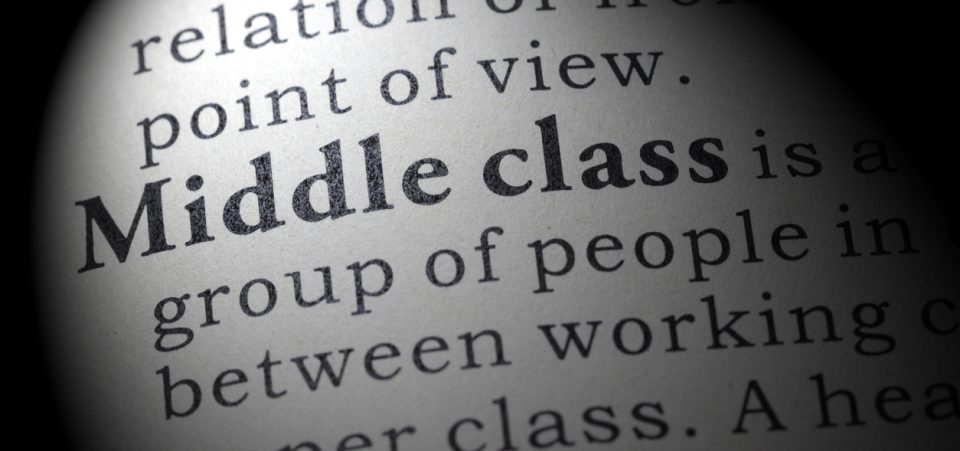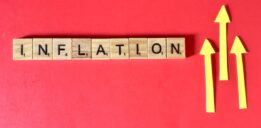Does the Middle Class Still Exist?
Many Americans who describe themselves as being Democrats or on the Left continue to chase Russian ghosts. It must hurt less to project the cause of trouble on an external enemy than it does to look for the real cause of the problem at home. They are especially pleased about the opportunity to continue delaying coming face to face with the real issue that few would dare explore: the demise of the middle class.
Hillary Clinton can rejoice in the fact that Vladimir Putin won a fourth presidential term in the Russian election—it was a triumph. She and her supporters can continue to direct the blame for her loss eastward. It means she and the Democrats can avoid self-examination.
Indeed, few are shocked. Prestigious scholars discussed the socio-economic shift in American society (and beyond) long before Donald Trump decided to run for president. But perhaps, unlike Clinton’s associates, Trump’s advisors read a few articles and took notice.
If you woke up with an academic appetite, you could try reading the article “Testing Theories of American Politics: Elites, Interest Groups, and Average Citizens” by Martin Gilens of Princeton University and Benjamin Page from Northwestern University. Surely, some of Trump’s mentors—and those advising Bernie Sanders—read it. Yet, I wonder if Clinton and the gurus from the Democratic party did. The smart money is on “No.”
Aristotle’s Message for America
Even if the report has some academic flaws, as some have suggested, it reflects a concern that many Americans are increasingly sharing. Has the United States become an oligarchy? In simpler terms, does the middle class even matter in America any longer?
Are you part of the middle class? Ten years ago, this question was one of the major interests of sociologists (and snobbish people). Now, it is a very delicate political issue. To understand why the demise of the middle class matters as a threat to the economy and to democracy itself, the classical Greek understanding of “middle class” is useful.
Indeed, no less a figure than Aristotle discussed the concept of a “middle class,” even as it has changed over the past few centuries. The famous Greek philosopher and tutor to Alexander the Great (who would conquer much of the known world of his day) described the middle class as a “caste” or a group that lives and exists between those who own many “substances” and those who own very little or nothing—the “deprived.”
There are a few ways to consider this problem. One is pragmatic, even practical, if you will. In a democracy and a free economy, where the accumulation of personal wealth is tolerated and encouraged, the more balanced the wealth distribution, the better the chances that the “haves” can keep and even enjoy their material possessions.
The second is more theoretical, yet not beyond the realm of possibility. In his treatise Politics, Aristotle warns that allowing the middle class to vanish or even fade, leads to tyranny. To use a more current term, fascism. Or better, it leads to one of two kinds of fascism. One form is the rule of the “oligarchs,” or the very rich. They manipulate the system to preserve their wealth and their interest.
The Example of Russia
Post-Soviet or post-Berlin Wall Russia comes to mind. In the early 1990s, Russia experimented with democracy. The trouble was that what passed for “democracy” was wild capitalism. The government privatized, in a chaotic way, the means of production that it once owned and managed.
There was no logic or political design behind the process. It was a Wild-West, every-comrade-for-himself approach, which ignored even the basic notion of financial recovery from the assets. Party leaders and those close to the leadership of the former state enterprises secured immense advantages.
They were the extreme minority and they managed to secure important pieces of state industry at bargain basement prices. Assets included some of the biggest mining, metal, oil, and banking companies in the world. These are the people that we call the oligarchs. Aristotle would have described them using the same term as well.
The lesson that Russians learned was one that would have worked well in the Wild West as well: capitalism displays criminal characteristics at its roots. Or what passes for capitalism develops where there are no rules. Certainly, this is not the capitalism that Adam Smith had in mind.
The West is edging closer to that kind of “democracy” even if through a different route. Traditional politicians have possibly forgotten what they must say to win. Or perhaps they are afraid that saying those things steps on some powerful toes—the ones of those who really have control.
The End of Res-Publica, the “Public Affair”
Private interests have gradually taken over the state in the West. Thus, the public interest (“Res-Publica” in Latin translates to “public affair” or “commonwealth” but is better known as “republic”) matters little.
Social discontent may not be intensifying as it was in the former Soviet Union, but it’s becoming stronger. People are realizing that their expectations are too optimistic.
Once, we could expect each successive generation to live better—in relative terms—than the one that preceded. But now the expectations of capitalism and democracy have been disappointed. This is the realm of political and economic opportunists.
Public opinion is becoming—or has become—disoriented. Perhaps, therefore, many are looking for strange explanations, beyond logic, for electoral results they refuse to accept. It’s not “fake news” that’s the problem; it’s a breakdown of the foundations of democracy.
Opportunists like Trump in the United States and others in Europe (the elections in Germany, France, Italy, Austria, Poland, Hungary, and beyond have shown this) have noticed the crack in the system. And they’re exploiting it.
The Meaning of Trump and Other “Populists”
The serious and old-style politicians, who still have a concept or a political philosophy, whether from the Right or the Left, are becoming extinct. Nobody wants to risk their careers by having models to defend. Politics, or what passes for it, has become fluid. It moves freely without pre-established goals. It is the system that promotes the Trumps of this world.
Without clear rules, there is no capitalism; there is anarchy. Thus, the middle class is worth preserving, if for no other reason than to ensure that rules and boundaries exist within which capitalism can thrive. Now, political leaders who have appeal tend to come from worlds beyond politics.
The process started in Europe—in Italy, in fact, where all major western political experiments begin—in the 1990s. It’s gaining strength and Trump is the result. Still, there will be more Trumps, and not as benevolent. The anarchic democracy we are experiencing could produce violence—look at college campuses today. Who’s there to pick up the pieces?
Some wealthy oligarchs of our own, the Silicon Valley-types, are already eying political office. The Jeff Bezos- and Mark Zuckerberg-types become richer every day. Yet, having achieved more wealth than anyone could dream, they will want political power. And a vacuum of the middle class will enable these desires. They will create the fascist dystopias that George Orwell warned us about in 1984.
It’s Dangerous and Only a Strong Middle Class Can Avert a Full System Collapse
Aristotle promoted the idea that the best political community is formed by the members of the medium class.
Indeed, when most citizens identify with the middle class, they produce the best political system we can imagine. It is in such a climate that peace and democracy can find stability and thrive. In a sense, it’s where mediocrity prevails. But mediocrity is the very definition of “middle ground.”
It’s the “Goldilocks” of social constructs. In contrast, too many differences generate discord. They encourage struggles among individuals and classes. They encourage the desire to dominate; what we call tyranny.
The Pew Research Center published a survey about the middle class. It showed that Americans are quickly becoming disillusioned. Many feel that the middle class is collapsing and that wages are stagnating.
In 2008, around the start of the financial crisis, the percentage of Americans claiming to belong to the middle class was 53%. Now, this number has dropped to 44%. The main problem is that two-thirds of Americans believe (and few would correct them) that the gap between the rich and the poor is increasing and that the trend is irreversible. (Source: “America’s Shrinking Middle Class: A Close Look at Changes Within Metropolitan Areas,” Pew Research Center, May 11, 2016.)
Other studies have shown that the income “goal posts”—what it takes to enter the middle class—have become wider. In Silicon Valley, those earning $400,000 a year claim to be middle class. (Source: “Silicon Valley is so expensive that people who make $400,000 a year think they are middle-class,” Business Insider, February 20, 2018.)
The socioeconomic trends and statistics confirm many citizens’ sensations. The United States is losing the democratic spirit of its founding fathers. It has become an oligarchy in which the financial and technological elites are increasingly dominating. And when the rich want something, they get it. It has become increasingly so.
The expectations and hopes of average Americans count ever less, and the poor are becoming poorer. The American dream has become an American nightmare.
The decline of the middle class in the U.S. started before the financial crisis. It started in the early 1990s. New technologies heralded the “new economy,” eroding jobs and salaries of blue- and white-collar workers.
The 2008 financial crisis was the final blow that cut privileges for those who had survived or even thrived. The process started with job cuts and wage stagnation. And it continues as such now. Allowing this to continue will exacerbate resentment and cynicism, generating trouble for all.






